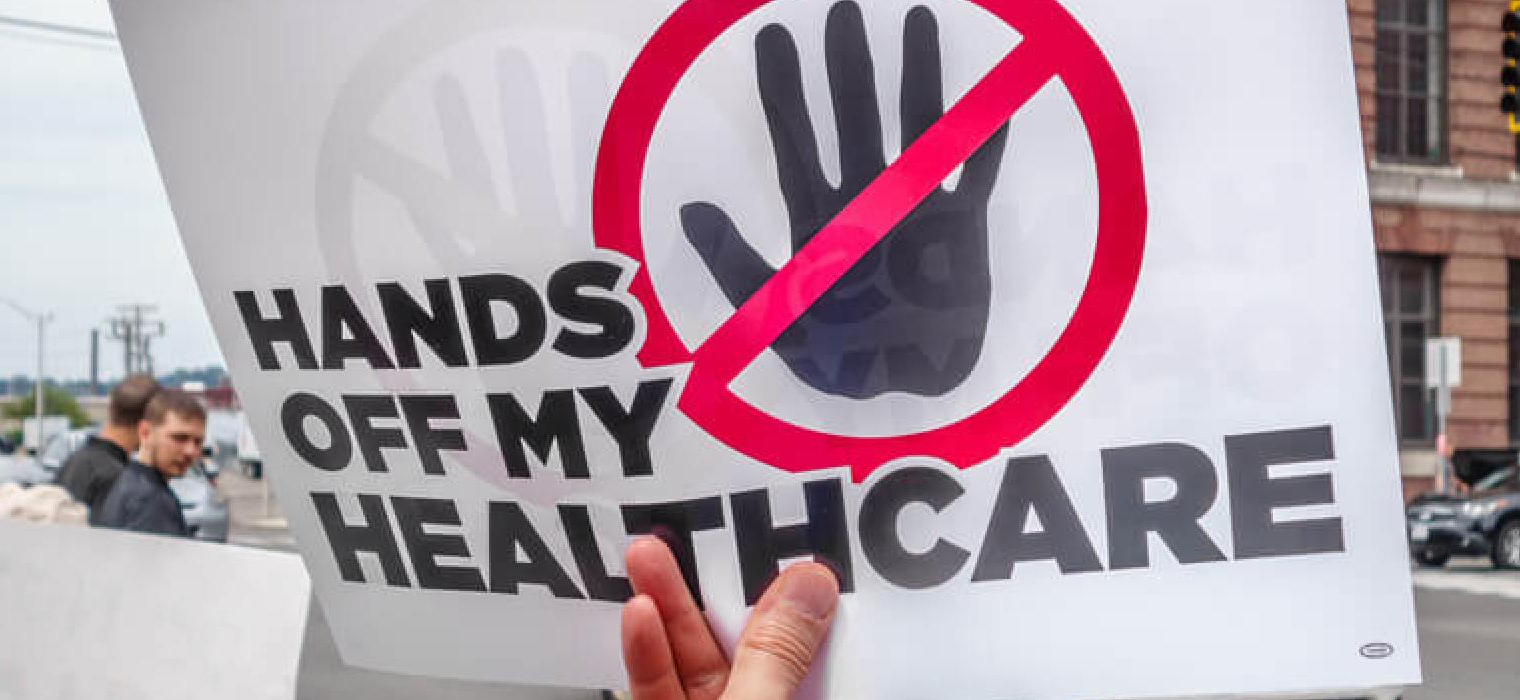
AUGUST 2, 2017
|
Insights
We Won the Fight for Health Care, and We Can Win Again
Commentary by Jim Wallis
The defeat in the Senate of the “skinny repeal” of the Affordable Care Act was a major victory — one brought about through a comprehensive strategy enacted by a broad coalition of groups and people working across political, geographic, and religious boundaries to ensure that millions of Americans continued to receive the health care protection they deserve.
Governors and mayors — who have the actual task of governing — applied public pressure on their home state senators; millions of individual constituents called, wrote, and met with their members of Congress; activist groups of all kinds took part in major public actions and civil disobedience in Washington. It took the work of everyone to voice their support for the basic principle that all Americans should have the right to quality, affordable, life-long health care — regardless of their age, location, or income.
I’m grateful for the 10 governors — Republican and Democrat — who wrote to senators asking them to reject the so-called “skinny repeal” because of how it would affect their residents. I’m grateful for the thousands of you who heeded Sojourners’ call and contacted your member of Congress to voice your opposition to any bill that would hurt the poor with devastating cuts to Medicaid.
I’m grateful to all those who organized powerful witness here in the nation’s capital. The statements, marches, press conferences, and acts of civil disobedience helped to keep the spotlight on the moral issues behind health care. I’m grateful for how the Circle of Protection was able to unite and mobilize leaders across the Christian families of faith to sign a strong statement on both health care and the budget; and convene a press conference which included the National Association of Evangelicals, the Salvation Army, the US Conference of Catholic Bishops, Christian Churches Together, the Wesleyan Church, the Episcopal Church, Catholic Charities, the Christian Methodist Episcopal Church, and the National Council of Churches. Grateful for my longstanding partner, David Beckmann of Bread for the World, in co-coordinating those efforts.
I’m grateful for the witness of leaders like Rev. William Barber II (Repairers of the Breach), Dr. Barbara Williams-Skinner (National African-American Clergy Network), Rev. Jimmie Hawkins (Presbyterian Church USA), Joshua Dubois (Values Partnership, Rev. Dr. Raphael Warnock (Ebenezer Baptist Church), Rev. Leslie Copeland-Tune (Ecumenical Poverty Initiative), Lisa Sharon Harper (FreedomRoad), Rev. Jennifer Butler (Faith in Public Life), Red Letter Christians, Rev. Dr. Cynthia Hale (Ray of Hope Church), Rev. Aundreia Alexander (National Council of Churches), Rabbi Jonah Pesner (Religious Action Center of Reform Judaism), Diane Randall (Friends Committee on National Legislation), the Evangelical Lutheran Church in America, and others. Grateful for organizations like Bend the Arc Jewish Action, the Franciscan Action Network, Washington Interfaith Network, and many others.
And grateful for the 7,150 Catholic sisters from all 50 states and the District of Columbia, organized by Network with Sister Simone Campbell, who signed a statement that concluded “[t]o cut Medicaid and take healthcare from millions of people is not a pro-life stance. We urge you to be mindful of the needs of all of our people and the call to the common good.”
During the final consideration of the health care bill on Thursday, I joined a group of faith leaders in holding a prayer vigil just off the Senate floor, encouraging senators to heed Jesus’ words in Matthew 25. Many senators passed right by us on their way into vote, surprised to see us, and asked why we were there. “Praying for you and your vote,” we said, and then asked each one, “Do you want us to pray for you?” Many said yes, please, and came into our circle for prayer as we laid hands on their shoulders.
I’m grateful to have had the opportunity to pray for Sens. Susan Collins (R-Maine), Sherrod Brown (D-Ohio), Tim Kaine (D-Va.), Bob Casey (D-Penn.), Michael Bennet (D-Colo.), Chris Coons (D-Del.), Kirsten Gillibrand (D-N.Y.), and Bob Menenedez (D-N.J.) — all who voted against the bill — as well as a few Republicans who didn’t vote “no” but felt the need for prayers.
I’m grateful that Sen. John McCain (R-Ariz.) in the end cast one of the deciding “no” votes. And I’m especially grateful for the remarkable and consistent courage shown by Sens. Collins and Lisa Murkowski (R-Alaska) — real heroes who led the way, and who, despite constant and aggressive pressure from their colleagues, the Senate leadership, and the president, refused to yield.
Like many others around the country, I was especially moved by the protest of disabled people, and the parents of disabled children, whose moving words and actions (sometimes in their wheelchairs), helped to spark the conscience of the nation.
Without all of these powerful words, contacts, prayers, and actions, the result of the vote last Friday could have been very different. So thank you to all and, above all, thanks be io God.
We need to celebrate the outcome. But as we said last week, this is not the end of our hard work.
After all, immediately following the radical words of Jesus in Matthew 25 calling on us to care for the hungry, thirsty, stranger, naked, sick, and imprisoned comes the first mention of the plot to kill Him.
Indeed, despite our victory last week, there are already those in Washington beginning to gather — even in secret — to discuss the next steps in dismantling Obamacare. President Trump has already threatened to end government payments for cost-sharing reduction subsidies to insurers, which would create chaos in insurance markets and disproportionally impact low- and middle-income families.
But there are also those that are coming together — perhaps driven by Sen. McCain’s powerful words on the Senate floor when he called on the Senate and Congress to return to regular order. There is a bipartisan group in the House trying to find ways to improve and strengthen Obamacare.
I support and agree with this bipartisan approach. We agree that there are areas that can be strengthened and improved in the existing law. But it should never happen at the expense of those most helped by Medicaid — the poor, the elderly, or the sick — because those are the people we are called by Jesus to care for most.
As Sen. McCain said, the goal should be to pass something “that will be imperfect, full of compromises … but that might provide workable solutions to problems Americans are struggling with today; and continue to move us in the direction of more coverage and more health care for more people. What have we to lose by trying to work together to find those solutions?” That’s how this process should be done. Not behind closed doors. Not without the input of women members of Congress. Not without input from Americans who have struggled to pay for their health care, not without the input of doctors and care givers, not without the input of those whose health is most at risk, and certainly not without input from the faith community — who collectively represent the interest of the single largest group of Americans.
Let us celebrate this victory. But let us also remember that our work is not done. We must remain vigilant and ready to respond. I am deeply thankful to be surrounded by so many incredible people who we are doing this work alongside. And we all want to say, thanks be to God.
Jim Wallis is president of Sojourners. His book, America’s Original Sin: Racism, White Privilege, and the Bridge to a New America, is available now. Follow him on Twitter @JimWallis.
get involved
